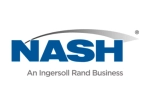Durability: LRCs have only one moving part and no metal-to-metal contact, which reduces wear and tear and extends their lifespan1.
Isothermal Compression: The liquid absorbs the heat generated during compression, maintaining a nearly constant temperature, which is beneficial for handling flammable or explosive gases.
Versatility: They can handle gas mixtures containing liquids or vapors without significant loss in capacity.
Low Maintenance: With fewer moving parts, LRCs require less maintenance compared to other types of compressors.
Why Use a Liquid Ring Compressor?
Handling Wet Gases: LRCs can efficiently compress gases that contain liquids or vapors without performance degradation.
Durability and Longevity: They are robust and can operate in harsh conditions, providing long service life with minimal maintenance.
Safety: The isothermal compression process reduces the risk of overheating and ignition, making LRCs ideal for flammable gases.


